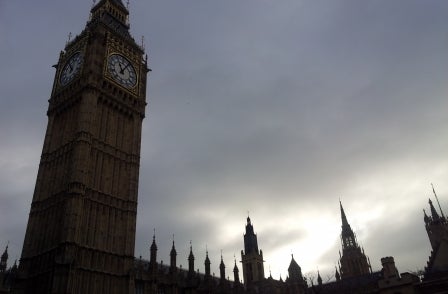
There is widespread concern that the Government will not follow through on its promise to provide new safeguards to stop police spying on journalists' phone records.
Last week the Government promised that as an interim measure it would require police forces to use the procedure under the Police and Criminal Evidence Act (PACE) in order to acquire journalists’ phone records.
Under PACE police must apply to journalists and news organisations in order to access editorial material and then, if necessary, make the case in court.
On Monday the government put forward an amendment to the Serious Crime Bill enabling the creation of a new Regulation of Investigatory Powers Act code as a interim measure to curb police spying.
This was seen by many as a victory for the Press Gazette Save Our Sources campaign.
This code is expected to be published very shortly. But the Government has indicated that under the code journalists will not get prior notification if a police force is seeking their phone records.
It appears that such requests could still go in secret to a phone provider. And although police forces will require the approval of a judge for the first time, journalists will not be able to argue their side of the case if they do not realise they have been targeted.
Speaking in Parliament on Monday, Home Office minister Karen Bradley said: “It has never been the practice in this country for those whose communications data are sought to be notified, and we do not intend to depart from that.
“However, this matter will need to be dealt with in the next Parliament. We have today published a draft clause which provides for judicial authorisation in cases where communications data are being sought for the purpose of determining a journalistic source.”
The National Union of Journalists, News Media Association, Society of Editors and Press Gazette have all raised concerns that the proposed changes do not go far enough.
NUJ legal officer Roy Mincoff said: "Under the Police and Criminal Evidence Act journalists must be notified by the authorities of an application to access their material and sources and have the ability to object, a right of hearing before a judge and the possibility of an appeal.
“The protections for journalists’ data under RIPA must be no less than that provided by PACE.
“To continue to allow the authorities to access journalists’ data and therefore sources will have a serious chilling effect on those who would otherwise reveal corruption, crime, abuse and wrongdoing by public and private bodies. Journalists are the public watchdog, with a duty to inform the public. The public has a right to be informed."
The News Media Association said: “The Home Office Minister also said that the government had no intention of introducing any rights of prior notice, contest or appeal of applications for communications data – key characteristics of vital importance to the media in relation to PACE production orders for journalistic material.”
The changes to RIPA follow a report from the Office of the Interception of Communications Commissioner which revealed police had targeted the phone records of 82 journalists in order to find their sources over the last three years.
Most of these related to unauthorised contact between police officers and the media.
Executive director of the Society of Editors Bob Satchwell said: “I’m pleased that the Government recognises that RIPA is unfit for purpose. In fact RIPA needs to be ripped up. We’ve been warning successive governments for 15 years about this problem.”
Press Gazette editor Dominic Ponsford said: “It looks like the Government’s promised RIPA reforms will not go far enough to safeguard sources.
"Ministers have said that the new RIPA code of practice will direct police officers to use the procedure under the Police and Criminal Evidence Act when it comes to requests for journalists’ telecoms records.
"But the fear is that such requests will still go direct to the telecoms provider and the journalist will have no prior notification. With no one to argue the case for source confidentiality, judges will only hear one side of the argument and could end up rubberstamping requests which expose sources.
"The government needs to listen to the legitimate concerns of journalists and ensure that the new RIPA code does what they have said it will do and provides the same safeguards as PACE. This is a tried and tested piece of legislation which covers requests for journalistic material. There is no difference between police asking for a journalists’ physical contacts book, and their telephone records. The effect is exactly the same and the same legal safeguards should cover both."
Email pged@pressgazette.co.uk to point out mistakes, provide story tips or send in a letter for publication on our "Letters Page" blog
